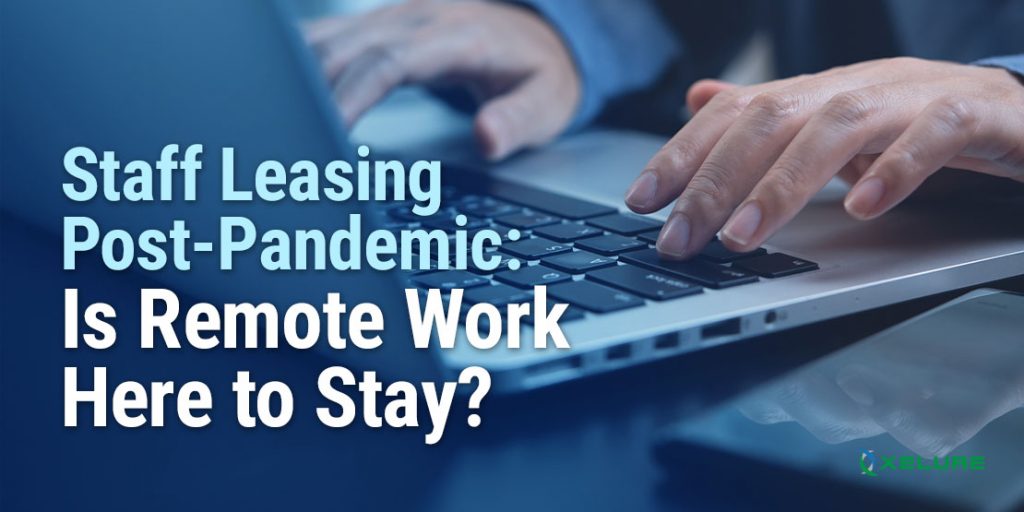September 29, 2025
Key Highlights
- The Philippine IT-BPM (IT & Business Process Management) industry is projected to grow 7% in 2024, reaching US$38 billion in revenue, with headcount rising to 1.82 million. (Reuters)
- IT Outsourcing in the Philippines is forecast to hit US$795.57 million in 2025, with a Compound Annual Growth Rate (CAGR) near 9.7% through 2030. (Statista)
- The Finance & Accounting BPO segment in the Philippines earned US$1.76 billion in 2024, expected to more than double by 2030. (Grand View Research)
As founder of Xelure Technologies and as a seasoned fractional chief technology officer (CTO), my journey into global support and offshoring beginning in 1989 has taught me first-hand that the true advantage comes not from low-cost seats, but from high-skilled, reliable, deeply integrated teams. After running tech projects in New York, I opened my first Philippine office in 2000 and made a deliberate choice to ignore the then-common back-office model. This led to my Professional Employer Organization Model to provide global talent solutions.
Today, spending half the year in Makati City, the Philippines’ central business district, I see how Filipino talent has evolved beyond the stereotypical image of call centers. The market is ripe not just for cost arbitrage, but for higher value, specialized services: engineering, AI, cybersecurity, advanced analytics, and legal / finance professional services, among many other fields.

Outsourceable Professional Services: What Works Beyond the Phone
These are roles and functions that are no longer “nice to have,” but are increasingly core to business operations, and that the Philippines is well-positioned to deliver.
1. Finance & Accounting (F&A)
Companies are outsourcing order-to-cash, source-to-pay, record-to-report, and procure-to-pay functions. Revenue in this segment in the Philippines was about US$1.76 billion in 2024, with expectations to reach approximately US$3.63 billion by 2030.
2. Legal / Paralegal, Compliance, and Regulatory Services
More clients are asking for offshore legal / regulatory capacity: paralegals, contract review, regulatory filings, IP work, etc. Because complex legal jurisdictions require careful work, having staff locally with Western standards of contract law, compliance and fluent English yields high margin and lower operational risk.
3. Business Intelligence, Data Analytics, and Reporting Functions
Companies often need dashboards, advanced data pipelines, and predictive insights. These roles require domain knowledge, tooling expertise, not just transcription or data entry. The Philippines is building capacity here, especially for clients in finance, fintech, health, and SaaS.
4. IT Support and Systems Integration (L2/L3)
With my own experience integrating technology centers across seven countries at NYFIX, I know that the hard work is not in voice support, but in solving deep technical issues—network, infrastructure, cloud, system interop. Outsourcing L2/L3 engineers here yields great ROI if done with proper hiring standards, oversight, and cultural alignment.

Digital Marketing & IT Outsourcing Capabilities
The Philippines is not just for support or back-office; its digital marketing and IT capabilities are maturing fast. Based on my observations over decades living part time here, and founding TheToast.io and Xelure, this is what works well; these are areas Western companies should lean into.
1. Full-stack Web & App Development
Developers with proficiency in modern stacks (React, Node, Python, mobile frameworks) are plentiful. Cost savings versus equivalent Western hires can be large, and work can be done in ways fully integrated with onshore teams. The rise of remote-first / hybrid teams makes this more reliable.
2. SEO, Content Strategy, and Performance Marketing
The cost of hiring digital marketing talent in the Philippines (for SEO specialists, content strategists, performance / PPC managers) is significantly lower, allowing companies to scale campaigns more aggressively. There are many agencies and freelancers with international experience. For instance, digital marketing spending in PH reached about US$2.8 billion in 2022, showing both supply and demand for high-quality work.
3. Social Media, Community Management, Creative Content
Filipino content creators, video editors, designers, social media managers are culturally in tune with Western consumption habits (thanks to years of exposure to global content), which speeds up modeling of voice, aesthetics, and humor.
4. IT Outsourcing / Application Outsourcing
The app-outsourcing segment is forecasted to reach US$195.19 million in 2025 in the Philippines alone with steady growth through 2030 (CAGR 4.66%). IT Outsourcing more broadly is expected to hit US$795.57 million in 2025, growing at 9.7% CAGR to 2030.

Emerging Specialized Outsourcing Niches
These are newer or rapidly growing areas that are less crowded, higher value, and where the Philippines is increasingly credible.
1. AI / Machine Learning / Deep Learning Engineering
There are agencies and staffing providers already recruiting machine learning (ML), deep learning (DL), and data science roles. Businesses can hire offshore AI engineers, save significantly (often 60-75%), and gain engineers who understand modern tools (ML pipelines, model deployment, inferencing).
2. Cybersecurity, Data Privacy, SOC (Security Operations Center) Services
With tighter regulations (GDPR, CCPA, HIPAA, etc.) and rising cyber-threats globally, companies no longer want “just support” — they want secure operations. The Philippines is continuing to train up, and companies are offering penetration testing, advisory, incident response, compliance audits, etc.
3. Remote Infrastructure & Cloud Ops
DevOps, cloud-engineers, infrastructure automation, containerization, monitoring — these are no longer “nice extras” but essential. Offshore teams in the Philippines are now handling production infrastructure under strong SLAs.
4. Professional Services in Industry Vertical Niches
Examples: legal counsel for technology contracts, regulatory compliance for healthcare or fintech, accounting/audit support in cryptocurrency / blockchain, content moderation for media platforms, animation and visual effects, etc. These areas require domain knowledge; the Philippines has growing human capital in many of them.

Challenges & What I’ve Learned From Doing It Hands-On
Having done this for over three decades: yes, this is possible, and profitable. But only if you do it right. Some of the key lessons:
- Always hire to the level of responsibility you need (L2/L3, senior dev, etc.), not just “cheap labor.”
- Invest in local recruitment and HR practices. I spend 6 months a year here in Makati so I can feel what’s happening in the market, what benefits matter, what morale looks like.
- Retention is everything. Attrition in call centers still runs high (30-40% or more), but moving into specialized services and offering meaningful growth, flexibility (remote / hybrid), good compensation, career paths, helps bring that down.
- Be very clear on communication, documentation, culture. Time zone overlaps help, but non-verbal cues, standards, tooling all matter.
- Start with smaller pilot projects or embedded teams to test alignment (quality, speed, accountability), before scaling.
We Help You Build Your Team
One more thing I’ve seen very clearly from the U.S. side: there is a serious and growing talent shortage in many of the higher value roles companies want, which helps explain why offshoring to places like the Philippines isn’t just nice-to-have — it’s increasingly necessary.
For example, in cybersecurity the U.S. is estimated to be short around 466,000 skilled workers — people with experience beyond entry level, who can take on mid to senior roles. According to CyberSeek, only 69 workers are available for every 100 job openings in cybersecurity. Another report from Lightcast finds there are nearly 265,000 cybersecurity roles in the U.S. that cannot currently be filled due to inexperience, lack of specialized skills, or simply too few qualified applicants.
This is precisely where having a trusted offshore partner with proven experience and deep local recruiting (such as I’ve built with Xelure) can bridge the gap — it allows companies to tap into under-utilized, high-potential talent abroad without all the downsides of hiring only in-market.
At Xelure Technologies, we’ve built a PEO model for remote staffing that embodies precisely these lessons. We help Western SMEs hire dedicated Filipino professionals — from remote AI engineers to virtual assistants — who become fully integrated with your teams full-time. If you’d like to explore how offshoring can be more than just low cost, but actually a competitive lever for growth, let’s talk. Check us out at xelure.com — I’d be happy to help you map out a strategy tailored to your business.





